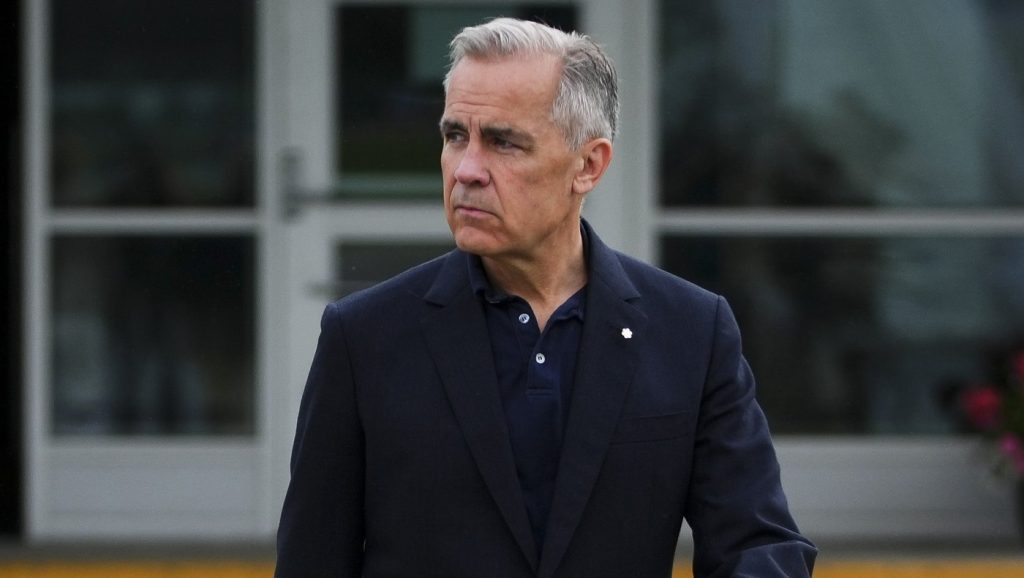OTTAWA — Prime Minister Mark Carney urged for de-escalation on Sunday following the United States' military strikes on three Iranian nuclear sites earlier that day. In a social media post shortly before 8 a.m. Eastern Time, Carney stated that the U.S. military action was intended to alleviate the threats posed by Iran, while emphasizing that the situation in the Middle East remains “highly volatile.”
Carney stressed the importance of regional stability, calling for all parties to return to negotiations and seek a diplomatic resolution to the crisis. He highlighted the risk Iranian nuclear ambitions pose to international security and reiterated Canada’s firm stance that Iran should never be allowed to develop a nuclear weapon.
The military intervention marks a significant escalation of the U.S. role alongside Israel in efforts to undermine Iran’s nuclear program, raising fears of a broader conflict. The global reaction has largely echoed Carney’s calls for diplomacy, with many nations acknowledging the urgent need for stability amidst concerns over Tehran’s nuclear activities.
Following the strikes, U.S. President Donald Trump claimed from the White House that Iran’s key nuclear sites were “completely and fully obliterated,” though independent assessments of the damage were not available. The possibility of continued U.S. military action against Iran alongside Israel remained uncertain, particularly as Israel has been engaged in a nine-day war with Iran, amid its ongoing conflict with Hamas, an ally of the Iranian regime.
In response to the U.S. strikes, Iranian Foreign Minister Abbas Araghchi warned on social media that the attacks would have “everlasting consequences,” asserting that Tehran “reserves all options” to retaliate. Reports indicated that Iran launched missiles into Israel shortly after the U.S. military action, resulting in destructive impacts on several cities and wounding at least 23 individuals.
On the same day, Foreign Affairs Minister Anita Anand reminded Canadians in the conflict region to register with Global Affairs Canada for country-specific information and available travel options. Amidst the conflicts, Global Affairs Canada reported that while Iranian airspace is closed, land border crossings into Turkey, Armenia, and Azerbaijan remain feasible for Canadians attempting to exit Iran.
Canadians located in Israel, Gaza, the West Bank, and Iran were advised to stay close to bomb shelters or secure structures, as updated on a Global Affairs Canada webpage. Conservative Leader Pierre Poilievre also weighed in, asserting that preventing the Iranian regime from obtaining a nuclear weapon was paramount and justified the actions taken by the U.S. and Israel. He urged the Canadian government to protect its citizens from potential violence stemming from the situation.
Poilievre expressed hope that the Iranian populace would rise to challenge their regime, aspiring for a future of freedom and peace. While Canada has not called for regime change in Iran, it lacks diplomatic relations with the country after then-Prime Minister Stephen Harper closed the Canadian embassy in Tehran in 2012. Recently, Canada classified the Iranian Revolutionary Guard Corps as a terrorist entity and implemented sanctions against numerous individuals and entities related to human rights violations and efforts to destabilize global peace.
A recent inquiry into foreign interference in Canadian democracy found that Iran had not historically been a significant actor, instead utilizing transnational repression to suppress criticism of its government. However, the Canadian Security Intelligence Service (CSIS) indicated in its 2024 annual report that Iran is likely to use proxies to target perceived adversaries in foreign states, including Canada. The report cautioned that threat-related activities linked to Iran could persist and escalate depending on developments in the Middle East.
Mark Carney and Anita Anand were scheduled to depart for Europe on Sunday for security and defense discussions at the European Union and NATO summits.











